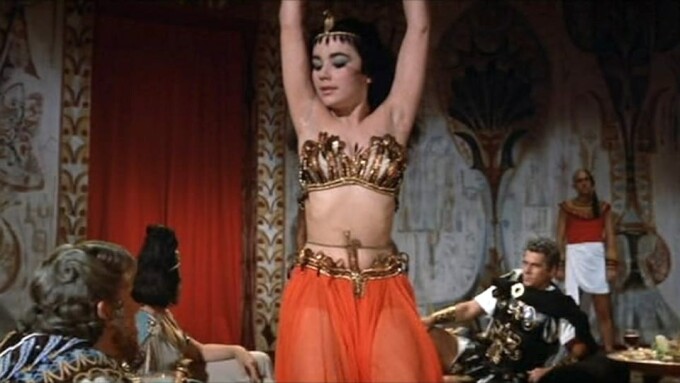SALT LAKE CITY — A Utah school board that ordered the Bible removed from certain school libraries, as it was found to be in violation of Utah’s draconian new anti-porn law, reversed course on Tuesday after community pressure to exempt scriptural descriptions of incest, rape and other sexual matters from censorship.
The Davis School Board had previously determined that the Bible was age-appropriate for continued inclusion in high school libraries, but not in junior high or elementary school libraries.
As XBIZ reported, in December 2022 a Davis District parent decided to challenge the arbitrary, expansive nature of the state’s legal redefinitions of “pornography,” by flagging the Bible in an official complaint for its numerous instances of sexual content.
Calling it “one of the most sex-ridden books around,” the parent asked the school district to review the Bible for “inappropriate content.”
“Incest, onanism, bestiality, prostitution, genital mutilation, fellatio, dildos, rape, and even infanticide,” the parent wrote. “You’ll no doubt find that the Bible, under Utah Code Ann. § 76-10-1227, has ‘no serious values for minors’ because it’s pornographic by our new definition.”
HB 374 — state legislation that cites Utah Code Ann. § 76-10-1227 — was passed in 2022 and bans books containing “pornographic or indecent” content from Utah schools and libraries.
The Bible then became mired in a months-long process because Utah parents have ramped up their challenges to a vast number of books they consider “pornographic” or “obscene.”
“We don’t differentiate between one request and another,” a school district spokesperson told the Salt Lake City Tribune in March. “We see that as the work that we do.”
The original complaint included an eight-page list of Bible passages including content involving sex, alcohol, nudity, rape and incest.
“Get this PORN out of our schools,” the complaint urged. “If the books that have been banned so far are any indication for way lesser offenses, this should be a slam dunk.”
An Attempt at Draconian Censorship Temporarily Backfires
Under Utah’s new censorship rules, the challenged books also may not be left on library shelves during a review.
According to state attorneys, who acted in tandem with right-wing lobby Utah Parents United, those assessing the suspected material do not have to follow the “taken as a whole” provision established in 1973 by the Miller Test, which differentiates between obscenity and First Amendment-protected pornography.
“If there is a scene involving any of those acts, it should be immediately removed,” the Salt Lake City Tribune reported.
This week, however, under substantial pressure from community leaders, including LDS Church leadership, the appeal committee deemed the Bible “age-appropriate” and the Davis School District Board of Education voted unanimously to allow the Bible to be included “in school libraries at all levels,” the Board announced through an official statement.
“Based on its assessment of community standards, the appeal committee determined that The Bible has significant, serious value for minors which outweighs the violent or vulgar content it contains,” the Board ruled on Tuesday, in stark contrast to how non-religious books throughout the state have been assessed since the passing of the new anti-porn measures.
The Board also dismissed intimations that “the initial committee’s decision, or the district’s policy/process have been intentionally manipulated to undermine Utah’s sensitive materials law (HB 374).”
“This is wholly untrue,” the Board declared. “The district has always acted with intent to uphold the law and maintain school libraries free from harmful material.”
An appeal to a similar challenge regarding the Book of Mormon has yet to be decided.
Main Image: Brigid Balzen portraying Biblical temptress Salome performing a sultry dance in the 1961 Hollywood religious epic "King of Kings."






